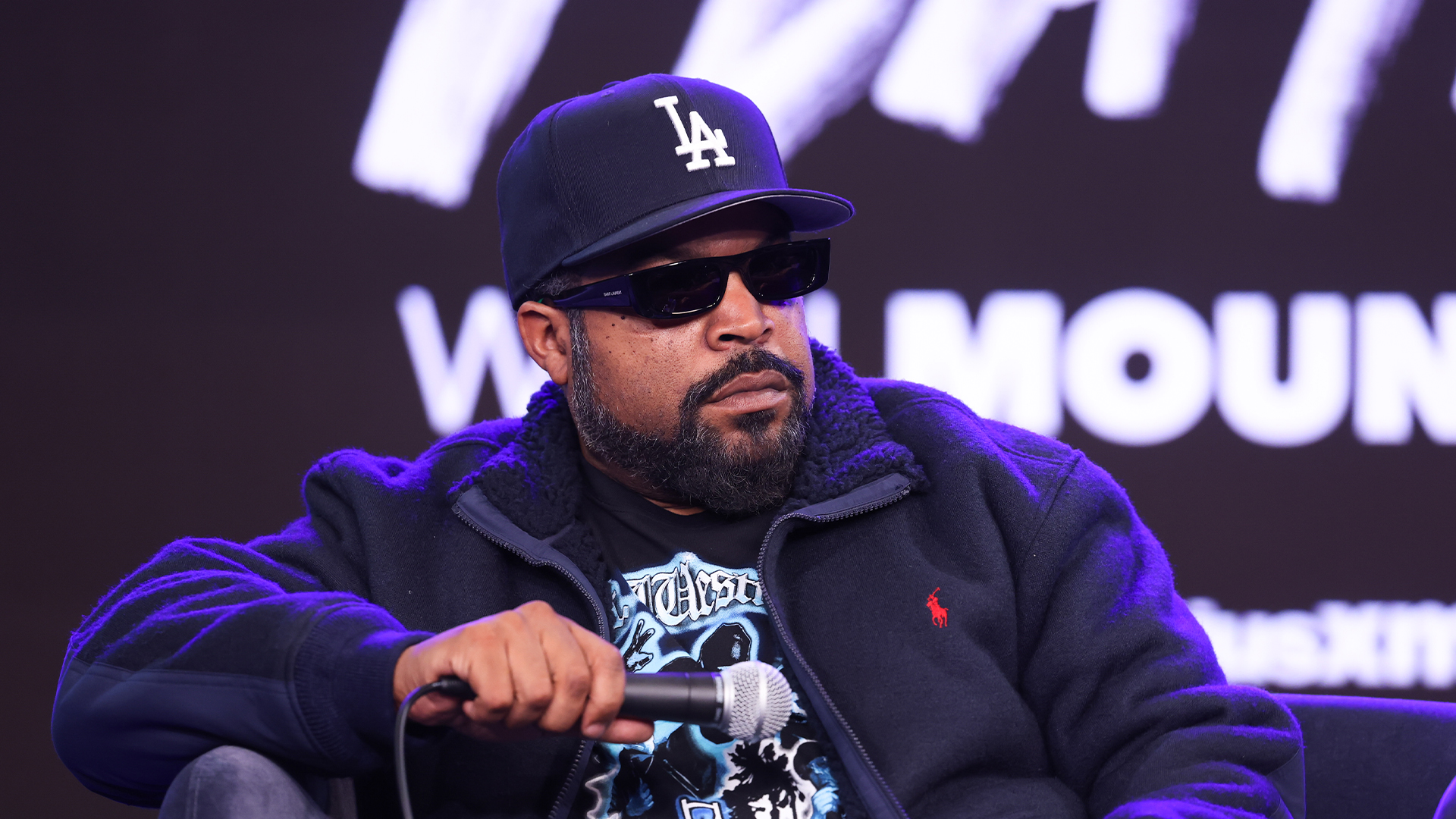Ice Cube, walking away from N.W.A., was a learning lesson for him on the business of Hip-Hop.
The rappers were all brought together by Eazy-E, who had created his own record label Ruthless Records in partnership with Gerald Elliot “Jerry” Heller. According to Los Angeles Times, it was the top independent label at the time.
N.W.A. was not yet signed when they formed in 1986.
“They didn’t have us signed at first, and they waited until really late in the game to start trying to get us signed,” Ice Cube detailed, according to Chicago Tribune.
Priority Records — created by former K-Tel Records executives Bryan Turner and Mark Cerami — would take note of Eazy-E and N.W.A., forging a partnership with Ruthless Records to release albums for Eazy-E and the group. According to the record label’s webpage, “the arrangement provided Ruthless Records national distribution and music industry muscle.”
The partnership resulted in the release of some of Hip-Hop’s most prominent albums, including Eazy-E’s “Eazy-Duz-It” (1988) and N.W.A.’s “Straight Outta Compton” (1988).
N.W.A.’s debut album went platinum the year after it was introduced to the music world and landed on Rolling Stone’s 500 Greatest Albums of All Time.
However, the group was short lived, with Ice Cube being the first to walk away. He didn’t feel he was being paid fairly after a contract was presented by Heller while they were on tour. Ice Cube was just 18 years old at the time.
He credits Pat Charbonnet, N.W.A.’s former publicist who later became his manager, for sounding off the alarm.
“She was saying, ‘You know Jerry?’ I’m like, ‘No, I don’t know these dudes. I don’t know Jerry.’ Now, she’s like, ‘Make sure you look at your paperwork. Make sure. I got a lawyer if you want to talk to him. Make sure everything is straight.’ So, I didn’t want to tell Jerry I had a lawyer, you know what I’m saying? I was like ‘My mama wanna see my contract before I signed it,'” Ice Cube said during an interview on the “Come And Talk 2 Me” podcast.
Heller wanted to offer Ice Cube a $75,000 contract. The rapper was not swayed.
“I can’t sign the contract ’cause I don’t know what’s in it,” Ice Cube explained on the podcast. “‘I’m trying to have you get it to my people and you won’t do it. So, I need to see what’s in that contract if I sign it.’ And he was like, ‘We got $75,000 for you, Cube.’ I said, ‘Well, ain’t that my money anyway, whether I sign it or not? ‘Cause the record is out. So, that’s my money anyway.’ ‘Oh, nah — can’t give it to you. Eazy said ‘Do not give it to you unless you sign.’ So, I just got up and left.”
By December of 1989, Ice Cube had disassociated from the group. However, history could have been rewritten, according to him.
“Pay people what you owe ’em, keep ’em happy, and you stay together. You get greedy and you break up. It’s been like that forever in the music business, so if I felt like I was being paid right or correctly, I would have stayed no problem,” Ice Cube expressed to Chicago Tribune.
Soon after his departure, Ice Cube went solo. With the help of Charbonnet, Cube signed a deal with Priority Records, which led to the release of his 1990 album “AmeriKKKa’s Most Wanted.”
“Pat Charbonnet was very instrumental in me recognizing that the situation with Ruthless and Jerry Heller just wasn’t right. Just by her being so smart about the business, I ended up naming her my manager, and the first person she went to was [Priority’s] Bryan Turner. She said: ‘Cube’s solo, you want to give him a deal? Or if not we’re going to go get it somewhere else.’ So he stepped up, and I’m glad he did,” Cube told The Guardian.
In hindsight, Ice Cube still shows no regrets over his decision to pursue a solo career because it served as a learning lesson and allowed him to trust his own artistry.
“I think leaving N.W.A, that was a big risk,” Ice Cube told HipHopDX. “It could have went all bad from there after reaching the mountain top and you just kind of throw yourself off. So that could have went bad, but it taught me how to trust myself, trust what I see and what I believe. And I was dedicated to not letting this business change who I am.”


